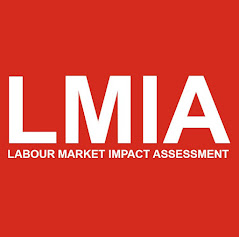Introduction:
LMIA stands for "Labour Market Impact Assessment." It is a crucial process in the Canadian immigration system that assesses the impact of hiring a foreign worker on the Canadian labor market. Before a Canadian employer can hire a foreign worker through most of the Temporary Foreign Worker Program (TFWP) streams and some of the International Mobility Program (IMP) streams, they must first obtain a positive LMIA from Employment and Social Development Canada (ESDC) or Service Canada.
History:
Purpose of LMIA:
Requirements:
Job Market Impact: Employers need to provide evidence that there is a genuine labor shortage in their industry or location that cannot be filled by Canadian citizens or permanent residents. This may involve advertising the job position for a specific period and demonstrating that no suitable Canadian candidates are available.
Wages and Working Conditions: Employers must offer wages that meet or exceed the prevailing wage rate for the position and ensure that the working conditions comply with Canadian employment standards.
Transition Plan: Employers must outline a transition plan detailing how they intend to reduce their reliance on temporary foreign workers over time and increase their recruitment of Canadian citizens or permanent residents.
Recruitment Efforts: Employers need to demonstrate that they have made significant efforts to hire Canadians first, such as advertising job vacancies in various places and reaching out to relevant job-seeking organizations.
Compliance with LMIA Conditions: Employers are required to abide by the conditions set out in the LMIA approval, such as providing accurate information and not engaging in any discriminatory practices.
New Rules for LMIA Canada 2023
As of April 3, 2023, the Temporary Foreign Worker
Program is moving to online LMIA applications.
There were also slight changes to the LMIA process in 2021. Under
the new LMIA system job positions are to be divided into just two categories:
high-wage and low-wage. Jobs are considered high-wage if the salary meets or
exceeds the median wage in the province where the job will be performed, and
low-wage if the salary is below the median.
Checklist for LMIA:
Employers in Canada would require to provide:
· Business legitimacy documents – Business Legitimacy is an important document to prove the legal existence of your business. The best document to present to IRCC would be a business license that covers all the important credentials needed for the application.
·
General information about the company – that
shall include information like license number, incorporation details, and
general information on legitimacy and throwing some light on the work description
of the company.
· Job letter – this shall include general information about the job offered. It will include the start date, pay offered, job title, responsibilities of the acceptor, etc.
·
Advertisement documents – It is
important to publish the job advertisement on Job Bank (requirement) but you
also need to publish the job adverts on 3 other portals to make it 4 in total.
Advertisement documents shall be a pdf of your advertisement on the job
portals. It should include the date on which the job was published on the
portal (very important). It is needed to showcase that you have complied with the
rules set by IRCC that states that the employer shall run the adverts not less
than 3 months before applying to the LMIA Application.
· Financial documents – Financial information that is paystubs of the employee, business current account information that showcases the financial stability of the business. These two documents are important to strengthen your application.
· Supporting documents for unique cases – These documents are based on your situation and the RCIC is the best person to guide you in your case.
The employer needs to note a few things:
· Know if you require the LMIA
· You should not charge any advertisement fees to the worker
It's important to note that LMIA requirements and processes may
change over time, so it's advisable to consult the official website of
Employment and Social Development Canada for the most up-to-date information
and guidelines regarding LMIA applications.
Want to apply for LMIA and do not know how to start? Get in touch with our RCIC
Consultant to get a clearer picture of LMIA.

Comments
Post a Comment